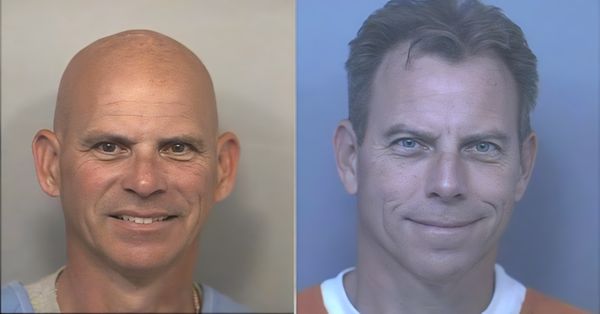
Sue Gray, the senior civil servant handed responsibility for untangling a string of Downing Street parties that allegedly broke lockdown rules, has been placed in an “impossible position, with an impossible task,” Labour’s shadow health secretary Wes Streeting has said.
Ms Gray, the second permanent secretary at the Cabinet Office, was given the job of leading the inquiry into the scandal after cabinet secretary Simon Case recused himself when it emerged that a party had also been held within his own department.
Boris Johnson and his Cabinet have since declined to answer questions about any allegations of rule-breaking and called for Ms Gray to be allowed to collect the facts and complete her inquiry in peace.
“Sue Gray is acting independently, she is leading this piece of work,” Mr Johnson’s official spokesperson has insisted, sailing past the inconvenient truth that she must ultimately report to Michael Gove.
“Under the terms of reference she is able to speak to who she wishes and investigate as she sees fit to ascertain the facts.”
She has, reportedly, already used that freedom to speak to Mr Johnson.
But her assignment seems to get more complicated by the day as more and more revelations continue to come to light on the front pages of Britain’s newspapers, carrying sordid tales of staffers being sent out to Co-op to fill suitcases with bottles of wine and drunken revellers staggering out into the garden of the prime minister’s official residence and breaking his infant son’s swing set.
At the outset, Mr Johnson was not thought to have been in attendance at any of the “gatherings” in question but now we know, by his own admission, that he was at the 20 May 2020 garden party, even if he did “implicitly believe it was a work event”.
His estranged former adviser, Dominic Cummings, who also notoriously broke the rules that spring with a visit to Barnard Castle in County Durham, has since alleged that the PM did know about that party in advance and ignored warnings that it ought to be shut down, which, if true, would mean Mr Johnson had lied to Parliament and therein violated the ministerial code, typically a resigning issue.
So not only is establishing the precise narrative of what went on when and who knew about it tricky enough, the veteran inquisitor also faces the prospect of incurring further anger from voters if she is ultimately deemed to have been too lenient and carried out a “whitewash” on the PM’s behalf.
Equally, delivering a damning verdict would mean overtly criticising the moral conduct of senior ministers and civil service colleagues with whom she has long worked and may retain friendly personal ties.
As such, she is widely expected to err on the side of caution and conclude that poor judgement was evident in abundance but that nothing criminal took place, keenly aware that it is beyond her remit to recommend the resignation of a British prime minister.
Sir David Normington, a former Whitehall permanent secretary, summed up the complexity of her situation when he told BBC Radio 4’s Today programme: “She will be very aware that she has the reputation and possibly the careers of senior civil servants and possibly of the prime minister in her hands, and that is a very difficult position to be in, however fair and fearless and rigorous you are.”
But, by all accounts, if anyone can walk that tightrope, it is Ms Gray, nicknamed “the woman who runs the country” and “deputy God” by MPs Oliver Letwin and Paul Flynn respectively.
“Sue has been there for so long, she knows everything that anybody has ever done wrong,” ex-Cabinet Office special adviser Polly Mackenzie told the BBC’s Profile programme in 2017.
Enjoying a reputation for diligence, Ms Gray is also so discreet that even her own precise age is disputed.
She is either 63 or 64, did not attend university and has served in the civil service since the late 1970s, barring a career break during the 1980s when she abandoned Westminster to run a pub called The Cove in Newry, Northern Ireland, with her husband, a country singer named Bill Conlon.
“If a pub landlady doesn't know what a party is, who will?” a rather wry family friend told The Daily Mail’s Michael Crick recently.
According to her biography on the government website, she has worked in the departments of transport, health and work and pensions “covering a range of roles which included both policy and front line delivery”.
Subsequently joining the Cabinet Office in the late 1990s, Ms Gray eventually became director general of propriety and ethics from 2012 to 2018.
It was in that guise that she carried out a number of high-profile inquiries into the likes of defence secretary Liam Fox, ex-chief whip Andrew Mitchell over “plebgate”, and Damian Green, Theresa May’s deputy prime minister, who was dismissed after he was found to have been “misleading” in a statement made to police regarding pornography on his office computer in 2008.
As The Independent’s Sean O’Grady writes, Mr Mitchell has since been highly complimentary about his one-time interrogator, commenting: “I have always found her to be extremely straightforward, very easy to deal with; she’s got a great sense of humour and she is clear-cut and doesn’t shilly-shally around.”
It was also in relation to this period as ethics chief that the former BBC Newsnight journalist Chris Cook complained that Ms Gray was “notorious for her determination not to leave a document trail” and had assisted departments to “fight disclosures” in the shape of freedom of information requests.
“If the government feels it has to get rid of a minister, she will give them cover to do that. If a government really wants to keep someone, she’ll find a way to do that,” he said.
She served as permanent secretary to the Northern Irish executive’s department of finance on secondment from the Cabinet Office between 2018 and 2021 before returning to occupy her present role last May, reportedly frustrated to miss out on the top job in the Northern Irish civil service and speculating to the BBC: “Perhaps I was too much of a challenger, or a disrupter.”
Many will be willing her to show some of that same spirit as she rattles out her Partygate dossier this week.







